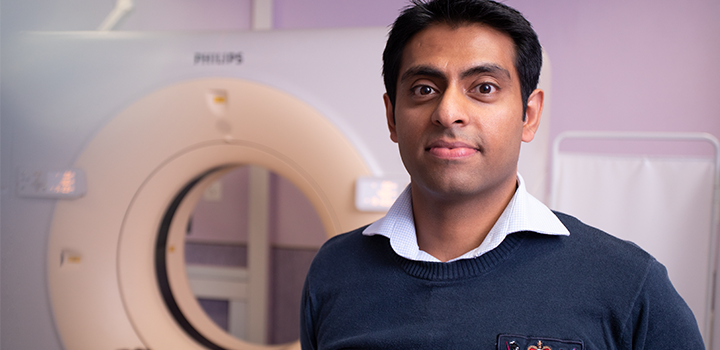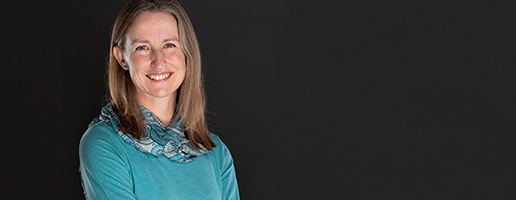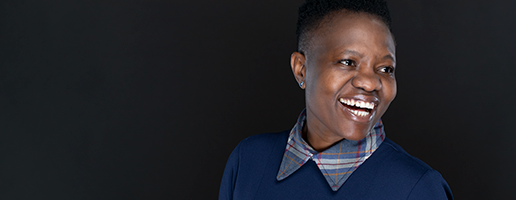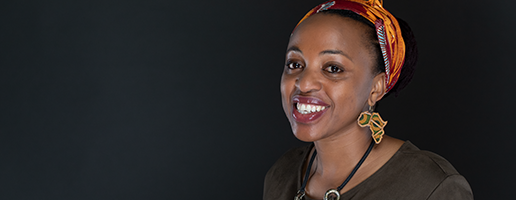Determined to ease Limpopo’s cancer burden

Dr Tijo Manavalan, a final-year radiation oncology registrar at the University of Limpopo, has received the 2019 Discovery Foundation Rural Individual Award to study post-radiation therapy hypothyroidism in patients with head and neck cancer.
Dr Tijo Manavalan’s earliest boyhood memories are of hiking in the Lesotho Mountains above Mohale’s Hoek with his hardworking teacher parents, exploring caves and wading in crystal clear streams. His parents, originally from Kerala state in southern India, were expatriates living in Kenya in the late 1970s, teaching science and agriculture, before moving to the Mountain Kingdom.
A family of exceptional hard workers
“Neighbouring South Africa presented better educational opportunities for us and employment for my parents, so when I was six years old, we moved to Mafikeng in North West Province where my dad was later appointed as the Chief Education Specialist in curriculum development. I was exposed to a diverse range of cultures and nationalities in Mmabatho High School, which had many children of expatriates. We were academically oriented and I did well, especially in science,” Dr Manavalan says.
His strongest memory of his parents and brother, and probably the biggest early influence on his medical career, is that they were “exceptionally hard-working”.
“I remember my dad always studying and at one point being simultaneously registered at two universities for two different degrees. My brother became a super achiever, garnering numerous awards during his medical training at the University of the Witwatersrand,” he adds. Unsurprisingly, given his early outdoor adventures, he is an avid road and trail runner and mountain biker.
A first place in his category at the Eskom Expo for Young Scientists further fanned the flames of learning. After matriculating, his wanderlust took him to Romania where he acquired his MBChB in 2004 from the University of Oradea, adding Romanian to his mother tongue of Malayalam – a language spoken in Kerala, India. After completing his community service, he considered entering the private sector. “I’m glad I didn’t. It’s so much more rewarding working among the population in the state sector,” he says.
Making a difference in Limpopo
Currently thriving at Pietersburg Hospital in Polokwane under Chief Specialist and Head of Department Dr Francis Ooko, the only fully qualified radiation oncologist in the public sector in Limpopo, Dr Manavalan has to plan his days carefully to make the most impact on his patient care.
“Our single biggest resource limitation is staff. In addition, we have only one linear accelerator for radiotherapy in the public sector in Limpopo, and we often treat cancers that are more advanced. There is also a waiting time of three to four months for radiotherapy after the first assessment.”
The workload means Dr Manavalan and his colleagues work after hours on patient scans to plan radiation treatments. Owing to the geographical location of Limpopo, they serve what he terms “a significant population” from neighbouring countries that lack oncology services and a population of 6.5 million people in the province. Pietersburg Hospital is Limpopo’s only oncology referral centre.
“Clinic and ward patients generally can’t wait, so you have to see them during working hours and triage those who are more urgent and would benefit more from quicker care,” he adds. With his Discovery Foundation Award, Dr Manavalan will study post-radiation therapy hypothyroidism in a cohort of 30 patients with head and neck cancer.
Thyroid testing uncommon in South Africa
He explains that the physical location of the thyroid gland means that patients who receive sizeable doses of radiation can be at risk of hypothyroidism. Global retrospective studies put the incidence between nine percent and 56% at five years after radiation therapy.
He says the 2018 international guidelines do recommend thyroid function testing six months after radiation. However, the changes have yet to filter down to the general clinical practice setting. In his research, he will measure the thyroid hormone before and after radiotherapy to find out if the levels are low or normal after treatment. Low thyroid hormone levels or hypothyroidism is treated with oral hormone replacement to make up for the unsynthesised hormones of a damaged thyroid. Most symptoms are reversible with treatment. He plans to begin his research in July 2019 and complete it during the first half of 2020.
Dr Manavalan did most of his early training at Rustenburg Provincial Hospital, where he completed a diploma in anaesthesiology shortly after his community service. Married to a clinical microbiologist, he has a three-year-old son. His longer-term goal is to become a clinician researcher. “I enjoy the patient contact, which is why I didn’t continue with anaesthesia,” he laughs.
“With oncology one has the privilege to connect in a very special way with your patient’s journey and it is often a longer and extremely rewarding relationship. Things that I want to research also come up often in such a rapidly evolving field. Ideally, my career would be a mix of both clinical medicine and research, with a bit of teaching thrown in,” he says. He finds working in a resource-limited setting highly stimulating. “People are a lot more grateful, kinder and happier when you help them. You can make more of a difference,” he says.
Enhancing cancer survivors’ lives
A huge hurdle for oncologists treating head and neck cancers is that the non-specific symptoms of hypothyroidism closely match those already present in a cancer patient. Most current treatment and follow-up protocols do not incorporate biochemical testing for hypothyroidism. Dr Manavalan decided to address this gap with his research.
“Symptoms are vague. The patient feels fatigued or depressed, they might gain weight or have cold weather intolerance or feel ‘under the weather’. None of these would surprise you in a cancer patient. Unless you specifically look for hypothyroidism, you would not know it’s there. In treatment planning, we aim to strike a balance between giving an adequate radiation dose to the tumour, while minimising the dose to normal tissues. The thyroid is one of the structures to which we would like to minimise the dose but it is not always contoured. If you don’t know how much dose the thyroid is receiving and you’re not following up on thyroid functions, you won’t know if anything’s wrong.”
Related articles

Measuring the rural health impact of a game-changing mobile app
Dr Natasha Blanckenberg is using her Discovery Foundation Rural Individual Fellowship Award to study the impact of the Vula app, which enables faster, more efficient specialist advice and referrals for patients in remote rural healthcare facilities.

Boosting Limpopo’s child cancer survival rate
It was during her paediatric department rotation at Sefako Makgatho Health Sciences University in 2003 that South Africa’s first black female paediatric oncologist, Dr Vhutshilo Netshituni, fell in love with children.

Taking small strategic steps to move a mountain
Dr Tumiso Malatji has received a Discovery Foundation Rural Institutional Award to fund a project that will evaluate and improve the management of cardiovascular diseases and diabetes at primary healthcare level at selected clinics in Limpopo.